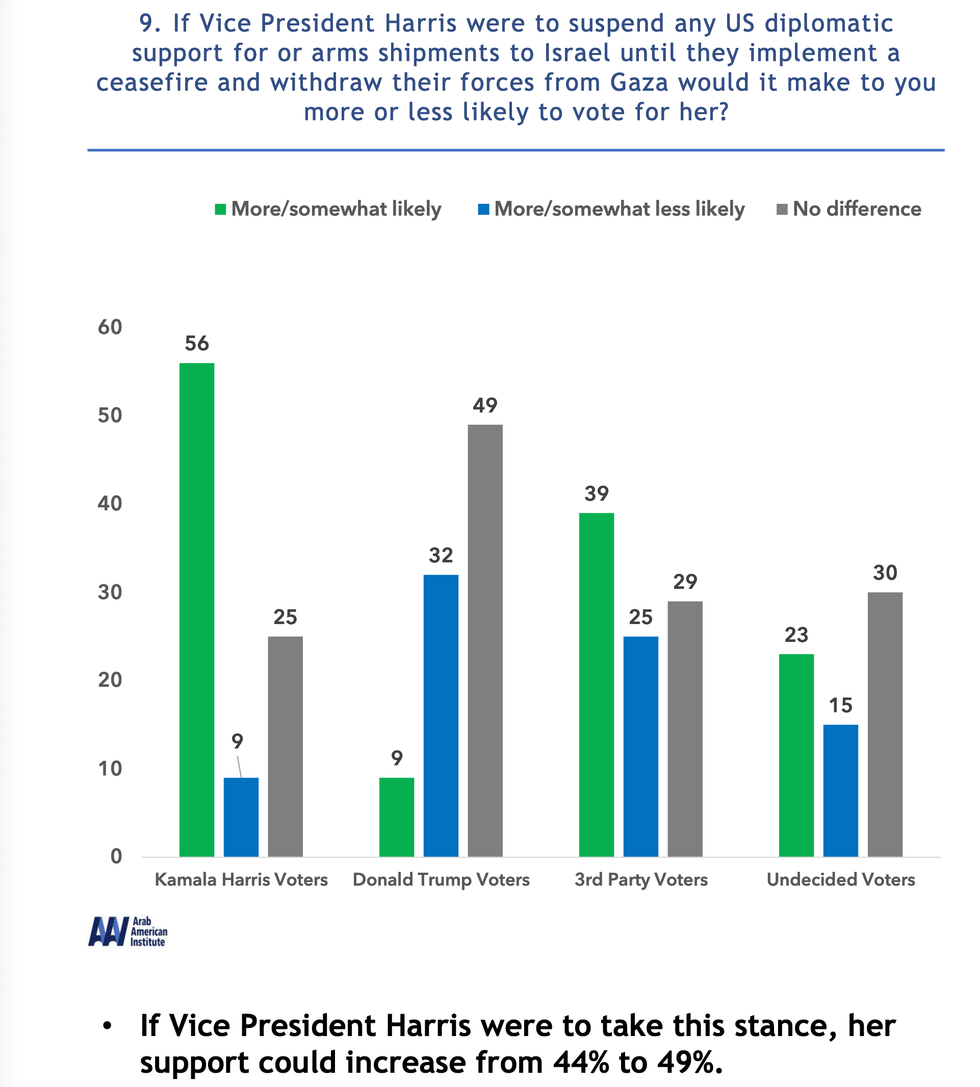Survey data published Thursday shows that U.S. voter support for Democratic presidential nominee Kamala Harris would grow if she heeded calls to support an arms embargo against the Israeli military, whose Gaza assault has relied heavily on a steady supply of American weapons.
Commissioned by the Arab American Institute (AAI), the online poll of 2,505 American voters conducted between July 31 and August 1 found that 44% of U.S. voters would back Harris, 40% would support Republican nominee Donald Trump, and 11% would vote third party "if the election for president of the United States were held today."
But if Harris were to endorse a suspension of U.S. arms shipments and diplomatic support for Israel "until there was a cease-fire and withdrawal of forces from Gaza," her national support would grow from 44% to 49%.
A majority of Democratic voters say the Gaza crisis is either very or somewhat important in determining how they vote in November, according to the AAI poll.
The new survey, which has a margin of error of 2 percentage points, is consistent with an earlier poll commissioned by the Institute for Middle Eastern Understanding Policy Project, which found that Harris would bolster her chances in key battleground states if she backed an arms embargo.

AAI's poll came a week after Harris said in her first major television interview since becoming the Democratic presidential nominee that she does not support withholding military support for Israel, even as she acknowledged that "far too many innocent Palestinians have been killed" in Gaza.
If not for U.S. military support, Israel would likely not be able to keep up its large-scale assault on Gaza, which has resulted in mass starvation and the reemergence of polio. Since the Hamas-led October 7 attack, the Biden administration has delivered 50,000 tons of weaponry to Israel.
The U.S. and Germany together provide 99% of the weapons that Israel imports.
An unnamed senior official in Israel's air force told Haaretz earlier this week that "without the Americans' supply of weapons to the Israel Defense Forces, especially the air force, Israel would have had a hard time sustaining its war for more than a few months."
Harris has expressed support for a cease-fire and hostage-release agreement, but critics of U.S. policy argue an arms embargo is necessary to force Israel's intransigent prime minister, Benjamin Netanyahu, to stop sabotaging negotiations.
Earlier this week, as Common Dreams reported, a coalition of human rights organizations argued that both U.S. and international law "require suspending weapons transfers to the Israeli government."
"Your administration's arming of the Israeli government," the groups wrote, "has been and continues to be shockingly out of step with the realities of civilian harm and suffering in Gaza."





